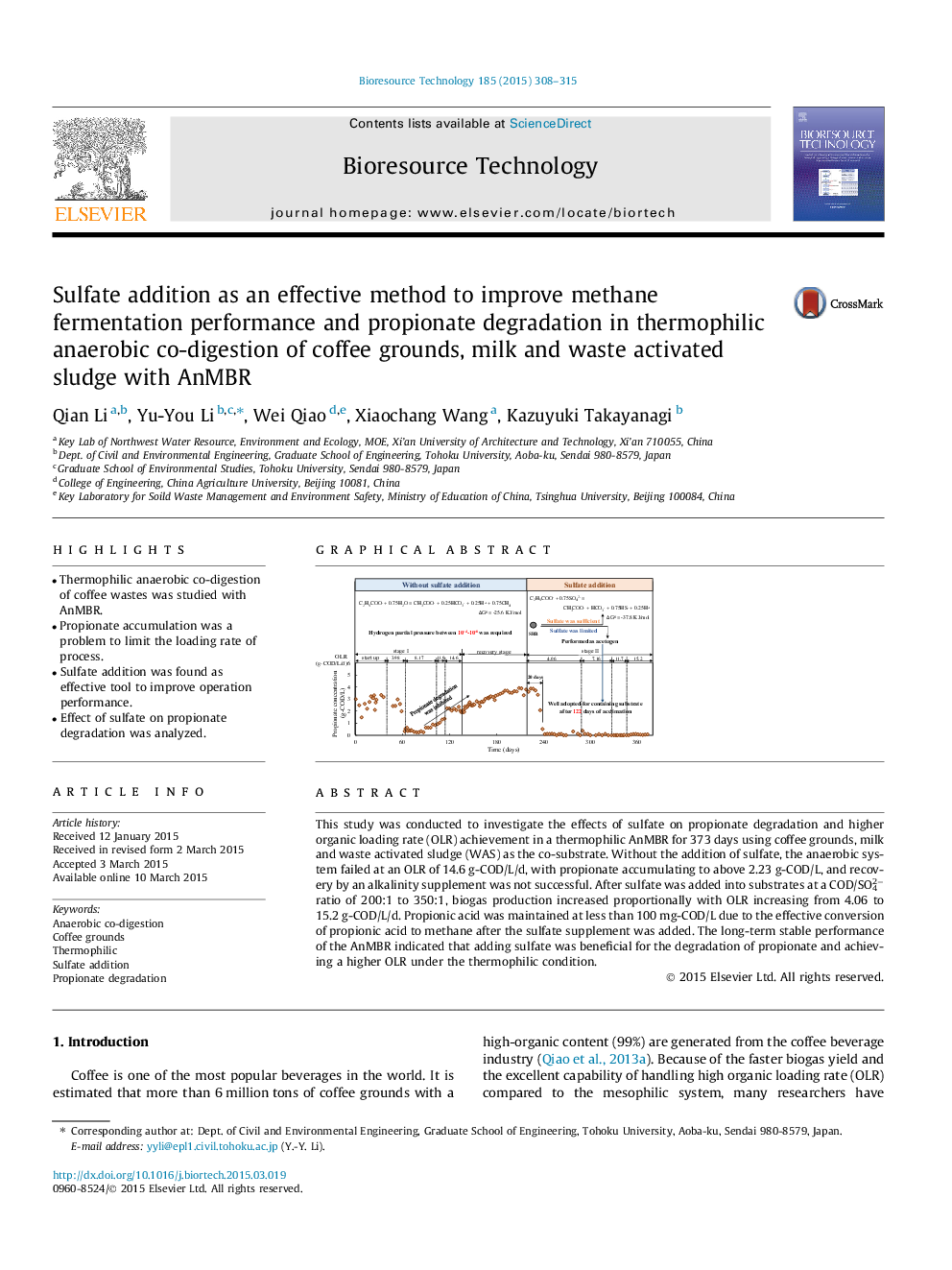| Article ID | Journal | Published Year | Pages | File Type |
|---|---|---|---|---|
| 679813 | Bioresource Technology | 2015 | 8 Pages |
•Thermophilic anaerobic co-digestion of coffee wastes was studied with AnMBR.•Propionate accumulation was a problem to limit the loading rate of process.•Sulfate addition was found as effective tool to improve operation performance.•Effect of sulfate on propionate degradation was analyzed.
This study was conducted to investigate the effects of sulfate on propionate degradation and higher organic loading rate (OLR) achievement in a thermophilic AnMBR for 373 days using coffee grounds, milk and waste activated sludge (WAS) as the co-substrate. Without the addition of sulfate, the anaerobic system failed at an OLR of 14.6 g-COD/L/d, with propionate accumulating to above 2.23 g-COD/L, and recovery by an alkalinity supplement was not successful. After sulfate was added into substrates at a COD/SO42− ratio of 200:1 to 350:1, biogas production increased proportionally with OLR increasing from 4.06 to 15.2 g-COD/L/d. Propionic acid was maintained at less than 100 mg-COD/L due to the effective conversion of propionic acid to methane after the sulfate supplement was added. The long-term stable performance of the AnMBR indicated that adding sulfate was beneficial for the degradation of propionate and achieving a higher OLR under the thermophilic condition.
Graphical abstractFigure optionsDownload full-size imageDownload as PowerPoint slide
